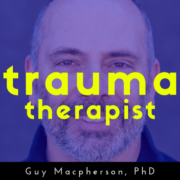We Have a special invitation to the TSI Family:
TSI is happy (excited, delighted – you name it) to announce a collaborative effort with ACTS (Alexander and Ciotola Training Services) to share the latest information about the efficacy of action methods (specifically TSM Psychodrama) in working with survivors of trauma and in promoting Post Traumatic Growth.
Nancy Alexander and Linda Ciotola are recipients of this year’s (2019) ASGPP Collaborators’ Award for the work they have done blending psychotherapy and psychodrama for trauma survivors.
The product of their collaboration is available in an on-line course: Introduction to Psychodrama for Trauma Survivors which includes 11 training modules (complete with video presentation, downloadable handouts, and more – see below for details of modules) and a video of a full-length psychodrama directed by Linda.
For a brief, video introduction to this program please visit:
http://ac-ts.com/psychodrama-introduction/
ACTS offers a tiered pricing structure, based on your status as a professional: trainer, trainee, student, etc.; and region of the world in which you live.
You can order the course directly from the links we are providing below.
For standard pricing based on professional status please visit:
https://training.ac-ts.com/a/aff_gt5q9qsw/external?affcode=137013_hj_ifodj
For those living in countries identified by the IAGP for reduced fee (or to find out which tier you are on), please visit here:
https://training.ac-ts.com/a/aff_s5l9f7m9/external?affcode=137013_hj_ifodj
6 CEU’s are available for your participation in this on-line course through CE-Classes.com.
For information and ideas about:
- how to establish a study group facilitated by a TEP to be able to obtain distance-learning credit from the American Board of Examiners (and perhaps by other psychodrama certification boards),
- using the on-line course to waive a requirement for TSM Level I certification, or
- setting up a study group with an interpreter for groups for whom English is not a preferred language
please contact Mario at cossa@att.net
We are excited to be working with ACTS in this manner and by the opportunities this on-line course will provide around the globe.
Below are the description of the modules contained in the course:
MODULE ONE: AN OVERVIEW OF PSYCHODRAMA
Includes a brief history of Psychodrama’s founder J.L. Moreno, MD and his early work, an overview of the method’s applications and the overarching principles contributing to its effectiveness.
MODULE TWO: WHAT IS TRAUMA?
Creating a working definition of trauma, the various ways it is re-experienced for the individual, its effect of “rhythmic rupture,” and various contributing causes and their overwhelming prevalence.
MODULE THREE: WHAT ARE THE TRAUMA DISORDERS?
An overview of the trauma disorders occurring across a broad diagnostic spectrum, including: Post-traumatic Stress Disorder, Depersonalization Disorder, and Generalized Anxiety Disorder.
MODULE 4: HOW TRAUMA AFFECTS THE BRAIN
How trauma reorients and effects the brain, neurological changes as a result, including the impairment of communication between the brain’s hemispheres, and functional implications of overwhelming trauma
MODULE FIVE: FUNDAMENTALS OF TRAUMA-BASED PSYCHOTHERAPY
Highlighting the imperative of the therapeutic relationship for healing, the essential nature of safety and consistency, and the role of expressive therapies, including their ability to connect the internal verbal condition with the non-verbal.
MODULE SIX: TRAUMA-FOCUSED PSYCHODRAMA
Reviewing the ability of Psychodrama to bring objectivity and accurate labeling while re-writing trauma-based material, moving the brain beyond what is “stuck,” and creativity as the key to change.
MODULE SEVEN: THE DIFFERENT KINDS OF PSYCHODRAMA
Introducing a myriad of Psychodramatic and related action, art, movement and music methods and adaptations, including the Therapeutic Spiral Model.
MODULE EIGHT: HOW PSYCHODRAMA DIFFERS FROM OTHER METHODOLOGIES
Delineating the inherent differences between Psychodrama and other forms of therapeutic interventions, in particular how it is separate in nature from Psychotherapy and theater.
MODULE NINE: THE IMPORTANCE OF TRAUMA-BASED INDIVIDUAL THERAPY
Underlining the symbiotic nature of the therapeutic relationship and the healing process, establishing it as the core of reconstructive work and experiential validation.
MODULE TEN: THE BASIC ELEMENTS OF A PSYCHODRAMA
An overview of the essential elements, roles, rules and guidelines, and prevailing structures and methods of a Psychodrama according to the Therapeutic Spiral Model.
MODULE ELEVEN: CLOSURE AND WHERE TO FIND OUT MORE
Summary statements on the importance of safeguards using theater methods, expected outcome factors, testimonials from patients, and where to find out more about Psychodrama.


